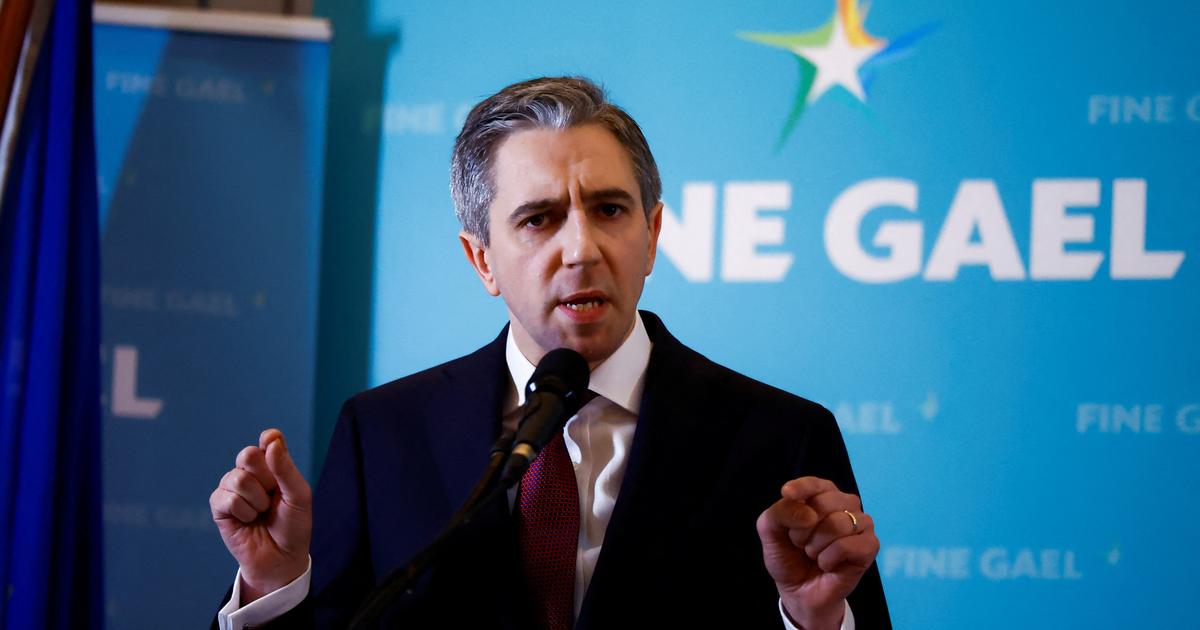United Kingdom and Gibraltar European Union membership referendum
all articles
No region is likely to suffer as much from Brexit as Northern Ireland. The majority voted against leaving the European Union in 2016, yet the country will have to follow the British as part of the UK. Whether a future customs border with the EU will be on the Irish island or on the Irish Sea: Northern Ireland will be directly affected.
The most important negotiator for the Northern Irish is the Democratic Unionist Party (DUP). She is the strongest force in Belfast and was until recently the most important ally of Prime Minister Boris Johnson in the Parliament in London.
For the DUP, Northern Ireland's unity with Britain has top priority. The position of the party was therefore always that in the case of Brexit under no circumstances may trade borders within the kingdom arise. Last week, party leader Arlene Foster warned that Northern Ireland could be "held captive" by a special status in the EU's internal market or in the EU Customs Union, thus supposedly being separated from Britain. She would block any such deal, Foster told reporters on Friday.
"Blood red line crossed"
So far, these goals have been in line with the premier's tough Brexit course. Johnson, like the DUP, rejects the backstop negotiated by his predecessor Theresa May and any EU proposals that Northern Ireland sees in the Customs Union with the EU. However, this seems to be changing in light of its dwindling bargaining options with Brussels.
His most recently submitted Brexit proposal provided for a continuation of Northern Ireland's internal market and controls at the ports in the Irish Sea, ie between Northern Ireland and the UK - a "blood-red line" for the DUP. Johnson's veto of the DUP seemed more like a consolation to his erstwhile allies.
It seems that the DUP had been degraded from the former kingmaker to a useless vassal. Now that Johnson is miles away after the departure of a number of rebellious Tories from his group, even with the votes of the DUP miles, the premises of his former ally seem subordinated.
Agree to a deal or not?
The premier's new course puts the DUP in a bind - it now has a choice between several bad options:
- If the DUP rejects the deal that Johnson is still trying to negotiate with the EU because it involves a border in the Irish Sea between Northern Ireland and the UK, that would increase the chances of leaving the EU without any agreement. This no-deal would hurt the entire kingdom economically, but especially Northern Ireland.
- As a result, the DUP may lose its support and the Northern Irish people turn to the nationalists, who are more likely to join Ireland than Britain. The block to which the DUP belongs belongs to the Northern Ireland Parliament with only 40 to 39 seats against the nationalists.
- If the DUP agrees to a border deal in the Irish Sea, it would be accused by the other parties of Northern Ireland of betraying unity in Northern Ireland and Britain. That would probably lead her own party into the abyss.
The leaders of the other Union parties are already positioning themselves. They had expressed indignation at Johnson's latest proposals. Jim Allister, chairman of the Traditionalist Unionist Voice (TUV), said the proposal was a fundamental attack on the country's position.
Northern Ireland as a sacrificial lamb
Jim Nicholson, a member of the Ulster Unionist Party (UUP) said: "I am afraid that Boris Johnson will give Northern Ireland as a sacrificial lamb to secure Brexit for the rest of the kingdom." Johnson wanted to serve especially the Brexit hardliners, said Nicholson.
DUP boss Arlene Foster still seems to want the impossible, and leaves room for interpretation with generic utterances:
- She wants to prevent the backstop and similar agreements that see Northern Ireland in the EU Customs Union.
- At the same time, an agreement should ensure both the long-term economic interests of Northern Ireland and unity with Britain.
On Tuesday evening, Foster met for talks with Johnson. The question of BBC journalists if they would support Johnson's deal left them unanswered. "More work is needed," she said on the status of the negotiations.
It has to be a limit
But whatever power the DUP has, changes quickly in Brexit chaos. As abruptly as the DUP lost its importance to Johnson, it could regain influence. Because the Prime Minister is already working on a new majority in parliament, for which he needs the ten deputies of the DUP. Should an agreement be reached within the framework of the EU Summit of Heads of State and Government on 17 and 18 October, Johnson would need the votes of the DUP for a vote in the House of Commons on 19 October.
To speed up DUP's decision-making, Johnson could also step into the treasury. In 2017, then-Prime Minister Theres May promised the DUP about € 1.7 billion for Northern Ireland when the party took a minority government with the Conservatives. At that time it was decided that the future external border of the EU should run between Ireland and Northern Ireland. However, the DUP denied reports on Wednesday morning stating that it had offered "several billion" in Downing Street negotiations in recent days.
more on the subject
But also indirectly, the positioning of the DUP could become important to a new Johnson deal. Recently, several Brexit hardliners said that they only wanted to agree to a possible new agreement with Brussels if the DUP were to support it as well. It associates with the DUP the patriotic argument that the Kingdom should not be damaged by customs borders between Northern Ireland and Britain in its unit.
But the calculus of hardliners should be more pragmatic: Ultimately, it probably drives the fear of a new referendum, which could demolish the Brexit quite. This would become more likely again with the failure of a deal and the extension of the exit period. On Wednesday morning, for example, the leader of the Liberal Democrats, Jo Swinson, again pledged to work for it. The Labor Party is also discussing a second referendum. So even tough Brexiters would be more likely to agree to a deal that does not quite live up to their expectations, given the short time Johnson has left for a deal.
This also applies to the DUP. However, she still has to decide which of the bad options for Northern Ireland is more bearable.















